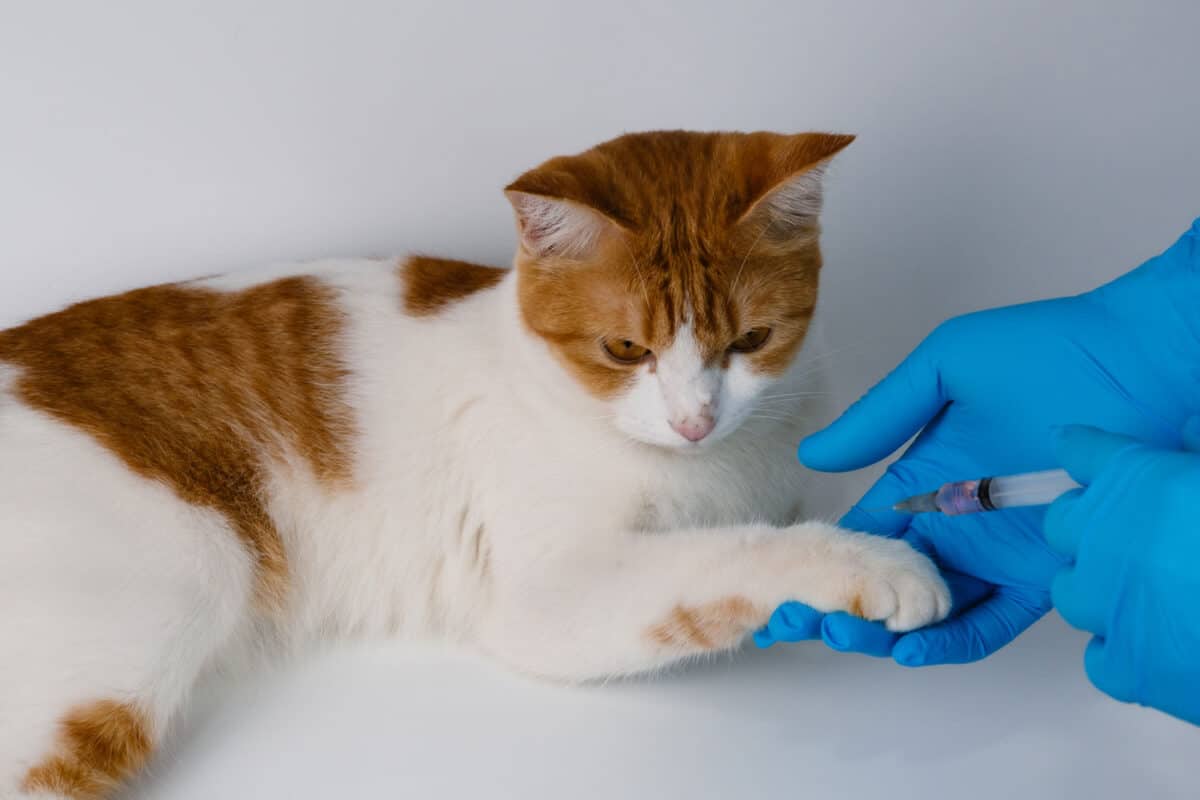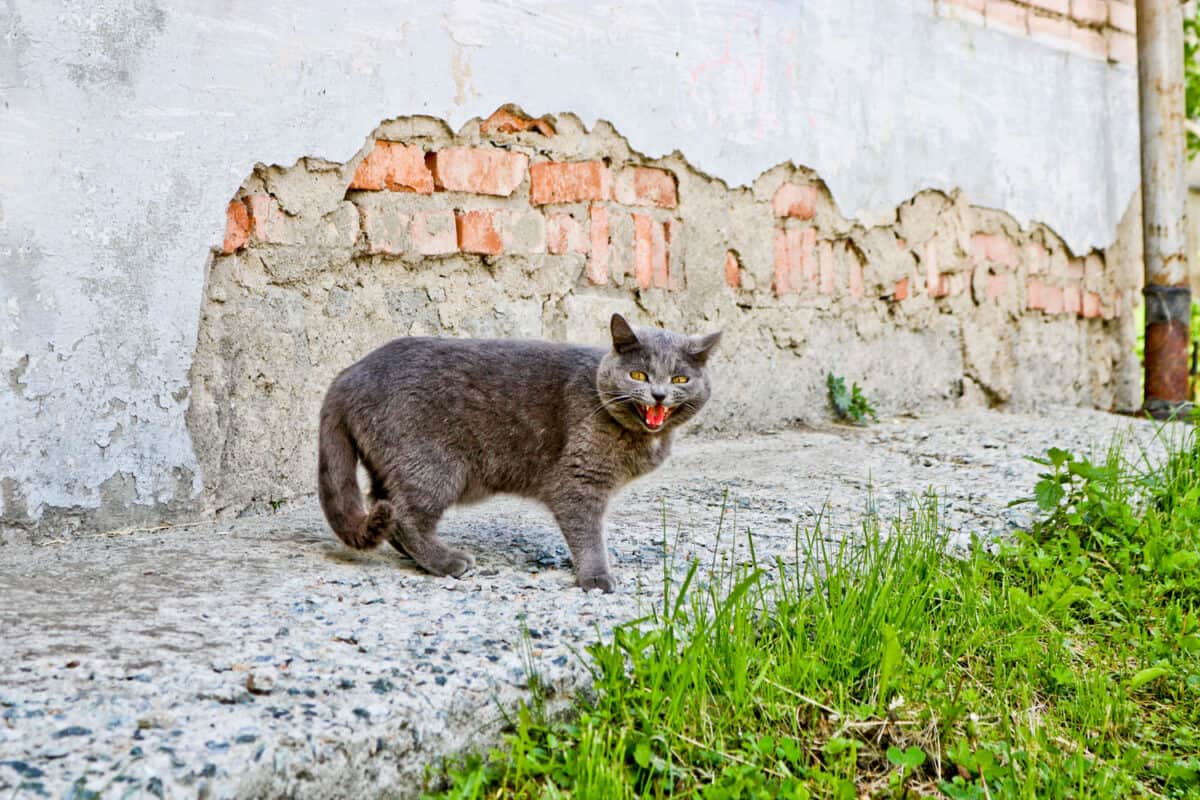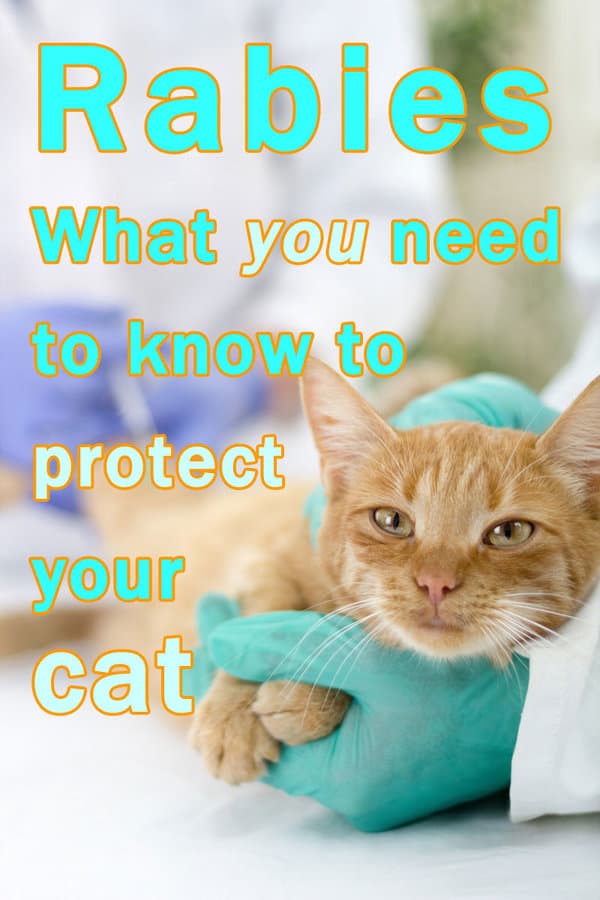Rabies is a word that strikes fear in the hearts of many and for a good reason.
This ancient disease has a terrifying reputation, with tales of infected animals, often dogs, foaming at the mouth and attacking humans with wild aggression.
In fact, Rabies is one of the few diseases in the modern era that is nearly 100% fatal once symptoms appear, and there is no cure.
But did you know that your feline friend is also at risk?
Whether you're a seasoned cat owner or new to the world of feline companionship, it's crucial to understand this deadly disease and the steps you can take to protect your beloved pet.
How To Tell If Your Cat Has Rabies
Symptoms of Rabies can take weeks to months to develop as the virus gradually makes its way to the brain.
Once the virus affects the brain, the cat will likely show increasing signs of discomfort for one or more days.
Then, the cat will enter a more acute phase known as the 'furious stage' of the disease.
A diseased cat will likely undergo extreme behavioral changes and become very aggressive during that stage.
Finally, the animal enters the paralytic stage, gradually losing control over limbs, and becoming increasingly paralyzed until it dies.
There is no cure for rabies once symptoms are apparent. The only course of action in case of a diseased animal is to put it to sleep as soon as possible.
What To Do If You Suspect Your Cat Has Come In Contact With A Rabid Animal
If you suspect that your cat has encountered a rabid animal, it's crucial to take action quickly due to the severe nature of the disease.

Immediately contact your veterinarian to have them examine your cat and place it in quarantine. Laws and local regulations will dictate how long the quarantine period lasts.
If your cat has received a vaccination, the quarantine will last about ten days.
However, if your cat has not received a vaccination, the quarantine period will likely extend much longer.
During the quarantine, your vet will closely monitor your cat for any signs of Rabies.
If your cat doesn't show any symptoms after the specified quarantine period, it likely isn't infected.
Following your vet's advice and recommendations throughout this process is essential to ensure your cat's and others' safety.
SIGN UP FOR THECATSITE'S EMAIL UPDATES >
Prevention Of Rabies
Prevention is key in dealing with Rabies. You should limit, and preferably prevent, your cat from coming in contact with wildlife.

If you allow your cat outdoors, you need to vaccinate her against rabies.
Some countries and states legally require cat owners to vaccinate their cats for rabies, so your cat may need to get the shot even if she stays indoors.
As with all cat vaccinations, some cats might react more sensitively and could be more susceptible to Vaccine-Associated Sarcoma.
Not all Rabies vaccines are the same. To reduce the risk of Vaccine-Associated Sarcoma, ask your vet to use a vaccine that doesn't contain adjuvant.
Rabies In Feral Cats
When dealing with feral cats, it's essential to consider their potential exposure to rabies.
Feral cats are more likely to contact rabid animals, such as raccoons, skunks, and bats, putting them at a higher risk of contracting the disease.

To help curb the spread of rabies and protect both feral and domesticated cats, rabies vaccinations are a critical component of the standard TNR (Trap-Neuter-Release) protocol.
The TNR approach involves trapping feral cats, providing them with necessary medical care, including rabies shots, neutering or spaying them, and then releasing them back into their territory.
This strategy not only helps control the feral cat population but also reduces the risk of rabies transmission to other animals and humans.
For more in-depth information about rabies and how to care for feral cats, including TNR best practices and resources, please visit the dedicated page by Alley Cat Allies, a leading organization in feral cat advocacy and support.
Final Thoughts on Safeguarding Our Feline Friends
As we navigate the world of pet ownership, it's crucial to stay informed and proactive. Rabies, though ancient, remains a pressing concern, especially for our feline companions.
By understanding the risks, recognizing the signs, and taking preventive measures, we empower ourselves to provide the best care possible for our cats.
Remember, knowledge is the first step to prevention, and with the right actions, we can ensure a safer environment for both our pets and our communities.
Stay vigilant and always prioritize your cat's health and well-being.
SIGN UP FOR THECATSITE'S EMAIL UPDATES >
Pin the image below to share this article and help others learn about rabies.

For more health-related topics, check out below.
Toxoplasmosis And Cats: Understanding The Real Risks
Feline Herpes And Rhinotracheitis: Expert Advice For Cat Owners
Note: We may get commissions for purchases made through links on this page.




7 comments on “Rabies – What You Need To Know To Protect Your Cat”